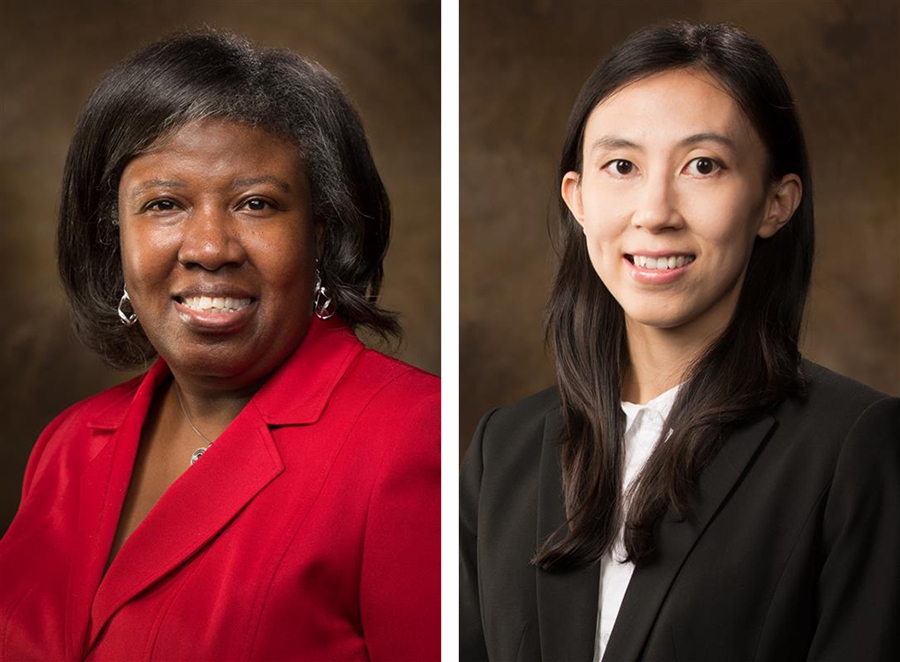FAYETTEVILLE, Ark. – University of Arkansas researchers have developed the first diversity intelligence scale that employers can use to ensure and improve diversity, inclusion and equity within their organizations.
The Hughes and Liang Diversity Intelligence Scale will advance human resource development by requiring leaders to possess and exhibit the knowledge to understand protected class employees and the legal mandates and executive orders established to protect these employees from discriminatory practices at work.
“Despite billions of dollars invested in diversity and anti-discriminatory practices training, many protected class workers remain under-utilized or marginalized due to leaders’ unfamiliarity with these groups of workers and/or incompetence to harness their talents to achieve organizational goals,” said Claretha Hughes, professor of human resource and workforce development in the College of Education and Health Professions. “Our tool will not only guide thinking and behavior to create a more inclusive organizational structure, but it could also save money and prevent headaches for organizations by reducing equal opportunity complaints and labor lawsuits.”
Hughes and Xinya Liang, assistant professor of educational statistics and research methods, use the definition of protected class provided by the federal Equal Employment Opportunity Program, which describes “the groups protected from the employment discrimination by law. These groups include men and women on the basis of sex; any group which shares a common race, religion, color, or national origin; people over 40; and people with physical or mental handicaps. Every U.S. citizen is a member of some protected class, and is entitled to the benefits of EEO law. However, the EEO laws were passed to correct a history of unfavorable treatment of women and minority group members.”
Hughes synthesized information from a qualitative survey of organizational leaders to develop an 8-point, Likert-type scale that measures three areas: knowledge, education and training, and behaviors related to protected class employees. Likert scales are a type of survey that allow individuals to express how much they agree or disagree with a particular statement. The researchers then used the quantitative survey developed by Hughes to collect more information from leaders of protected class employees and to further quantify their level of diversity intelligence.
A pilot study was conducted on a sample of 97 workplace leaders, ranging from supervisors to executive-level managers, such as chief executive, chief financial and chief operating officers. These supervisors and managers had direct responsibility for one or more employees. Within the pilot study, the researchers surveyed two groups – diversity advisory group leaders and leaders in general areas.
The scale is based on the premise of diversity intelligence theory, which posits that organizational leaders need to possess diversity intelligence to successfully integrate all protected class employees into the workplace. The researchers sought to develop a tool to assist leaders in this effort.
In addition to fostering a healthy organizational structure and reducing labor lawsuits and equal employment opportunity complaints, the scale will:
- Improve leaders' understanding of protected class groups in the workplace.
- Improve understanding of the effectiveness of compliance and diversity training.
- Improve employee performance as a result of improved employee morale.
- Provide access to a validated research tool that is useful for leaders in all fields.
Diversity is commonplace within globalized workplaces, but, despite millions of dollars expended on diversity training, managers and employees are often frustrated because of unrealized goals, discomfort and feelings of underutilization. Protected class employees are often described as not a fit for the organization.
“By developing and testing a tool for identifying and analyzing the level of a person’s ability to be aware of and understand protected class employees and the legal mandates and policies to protect all employees from discriminatory practice, our research has the potential to promote social change and reduce workplace violence, micro-aggression and trauma,” Hughes said.
Hughes manages a popular Facebook page focused on diversity intelligence. She said more than 150 people joined the Facebook group in the week following the death of George Floyd.
Hughes and Liang received funding from the Commercialization Fund, a subset of the University of Arkansas Chancellor’s Fund. The Commercialization Fund is a $1 million annual investment to help propel technologies with strong market potential to commercial readiness.
Hughes and David Hinton, associate director of Technology Ventures at the university, are interested in exploring partnership and out-licensing opportunities to enable leadership of organizations to take advantage of the Hughes and Liang Diversity Intelligence Scale to promote employee growth and demonstrate efficacy of educational interventions.
About the University of Arkansas: The University of Arkansas provides an internationally competitive education for undergraduate and graduate students in more than 200 academic programs. The university contributes new knowledge, economic development, basic and applied research, and creative activity while also providing service to academic and professional disciplines. The Carnegie Foundation classifies the University of Arkansas among fewer than 2.7 percent of universities in America that have the highest level of research activity. U.S. News & World Report ranks the University of Arkansas among its top American public research universities. Founded in 1871, the University of Arkansas comprises 10 colleges and schools and maintains a low student-to-faculty ratio that promotes personal attention and close mentoring.
About the University of Arkansas Technology Ventures: The University of Arkansas Technology Ventures has initiated a program to commercialize a wide range of research tools, whether patented or not. Technology Ventures manages, protects and commercializes the intellectual property portfolio of the University of Arkansas. Technology Ventures serves the university’s faculty, staff and students as well as external inventors and entrepreneurs to disseminate knowledge, technology and products to the public market to generate revenue and future research support. In this way, we also serve the public as it is our responsibility to enable public utilization of products derived from university research.
Topics
Contacts
Claretha Hughes, professor of human resources and workforce development
College of Education and Health Professions
479-575-2047,
Xinya Liang, assistant professor of educational statistics and research methods
College of Education and Health Professions
479-575-7948,
Matt McGowan, science and research communications officer
University Relations
479-575-4246,
